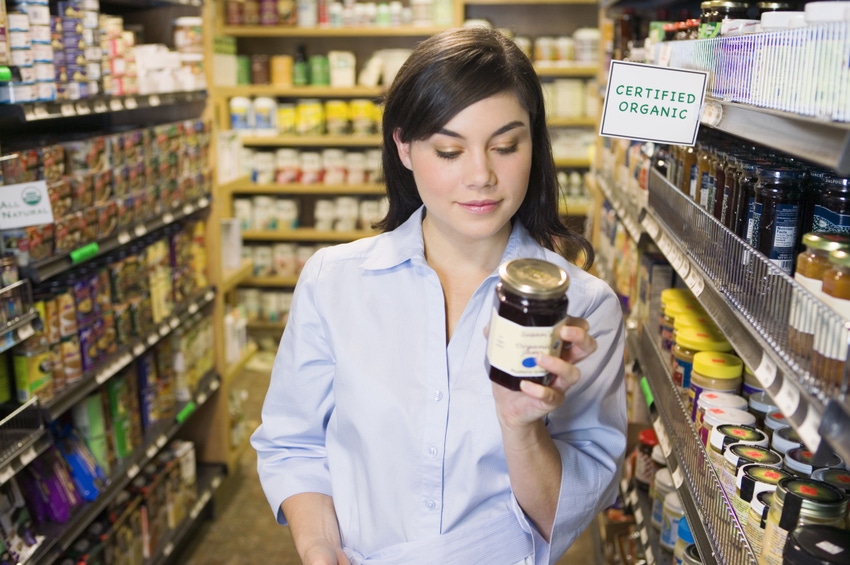July 13, 2016

The White House plans to support legislation creating a national labeling standard for foods containing genetically modified organisms even though consumer groups criticize the bill for allowing information to live behind special codes, and for allowing an exemption for meat and eggs.
“While there is broad consensus that foods from genetically engineered crops are safe, we appreciate the bipartisan effort to address consumers’ interest in knowing more about their food, including whether it includes ingredients from genetically engineered crops,” White House spokeswoman Katie Hill said in an e-mail. "We look forward to tracking its progress in the House and anticipate the President would sign it in its current form.”
The Senate-passed labeling bill, S. 764, is to be taken up in the House this week. The chairman of the House Agriculture Committee, Republican Mike Conaway of Texas , has signaled his approval, making it more likely the proposal will pass the chamber and end up on Obama’s desk.
Under the legislation, which has been pushed for by companies including Monsanto Co. , Wal-Mart Stores Inc. and groups including the National Corn Growers Association, consumers may still find it hard to figure out if the food they are buying is genetically modified, leading opponents to dub the bill the DARK Act.
The law doesn’t mandate printing “GMO” on the exterior, instead offering three options for disclosure: text on the packaging, a symbol, or an electronic link that would direct consumers to a website for more information.
Beef, pork, poultry and eggs wouldn’t be subject to labeling, though the deal would cover many other grocery staples including corn flakes and cooking oil. The bill also would tightly define genetic engineering in ways the biotech industry wanted, not including new techniques such as gene editing.
State-imposed labeling requirements would be banned and producers that have secured a “certified organic” designation from the U.S. Department of Agriculture would be allowed to clearly display a “non-GMO” label on their products.
Vermont Consequence
The push for a nationwide standard is in response to a law that took effect in Vermont on July 1 requiring disclosure of GMO ingredients on food labels. That rule, plus other initiatives in Maine, Connecticut and other states, has food companies and commodity-growers concerned about a patchwork of state laws that would impede commerce, expose them to fines, needlessly scare consumers about safe products and force expensive reformulations of food products to become GMO-free.
“There is too much at stake in the marketplace to let the consequences of the Vermont law linger any longer,” said Richard Wilkins, a Delaware soybean farmer and president of the American Soybean Association, in a statement after the Senate vote.
Coca-Cola Co., the world’s largest soft-drink company, said June 28 it expects to pull some of its beverages from Vermont stores to avoid penalties. General Mills Inc., Campbell Soup Co., Kellogg Co., Conagra Foods Inc. and Mars Inc. have all developed new labels to comply with Vermont, which has defended its law in courts and in Congress, where Vermont Senator Bernie Sanders briefly threatened to hold up the Senate’s vote on the measure.
The implementation of the law has caused confusion and concern among Vermont retailers and food distributors, said Erin Sigrist, president-elect of the Vermont Retail and Grocers Association. And as the state adopts the new rules, there have been worries about shortages of staple items, including things like baby formula.
Food companies also find themselves navigating uncharted waters. Dannon, the leading seller of yogurt in the U.S., sent some Vermont retailers GMO labels and asked for their help applying the stickers "in some situations due to the logistics of distribution," according to the company. Dannon said in April that it would label all of its products in the U.S. for GMOs by December 2017.
But pre-empting Vermont with an industry-friendly law will thwart the goal of helping consumers know where their food comes from, said Dana Perls, senior food and technology campaigner for Friends of the Earth, an environmental advocacy group.
“This bill is a travesty, an undemocratic and discriminatory bill which preempts state laws, while offering no meaningful labeling for GMOs,” said Perls.
Under the legislation, the USDA has two years to write rules, which will take time because of complexity within food production. For example, when a majority of a product is made with meat, no GMO label would be required. In the case of a pepperoni pizza, for instance, a label would be needed if the flour in the crust came from GMO grain, according to Michigan Democratic Senator Debbie Stabenow, who helped craft the bill.
By taking disclosure off the physical label, consumers have less-than-ideal access to information some might want to know, said William Lesser, a science and business professor at Cornell University in Ithaca, New York. “Many food consumers will simply not take the time needed to inform themselves about the ingredients of the many food items they purchase.”
Still, the Vermont law forced Congress’s hand, he said. in an e-mail. "The implementation of the Vermont mandatory GMO labeling bill on July 1 makes essential some form of federal labeling preemption,” he said. “The likelihood of a hodgepodge of individual state and local labeling laws would be confusing for consumers and costly for the food system, and ultimately consumers."
In the U.S. about 90 percent of alfalfa, cotton, canola, corn, soy, papaya, sugar beets, zucchini and yellow summer squash are genetically modified, according to the Bellingham, Washington-based organization Non-GMO Project.
--With assistance from Erik Wasson and Craig Giammona.
To contact the reporters on this story: Alan Bjerga in Washington at [email protected];Angela Greiling Keane in Washington at [email protected]
To contact the editors responsible for this story: Katherine Rizzo at [email protected]
Bennett Roth
© 2016 Bloomberg L.P
You May Also Like




